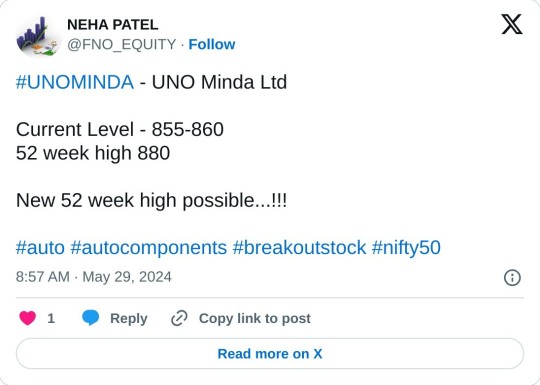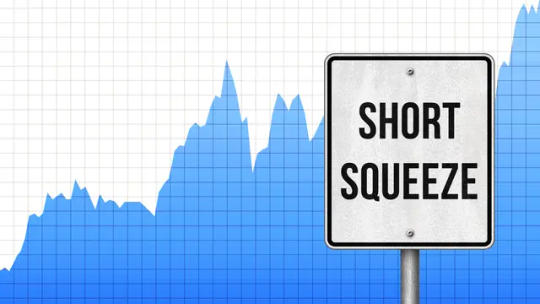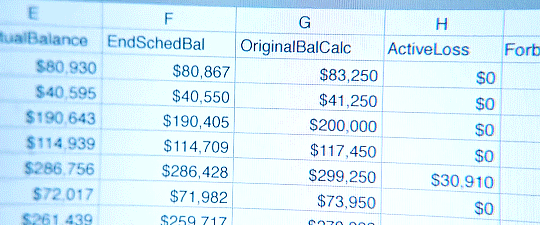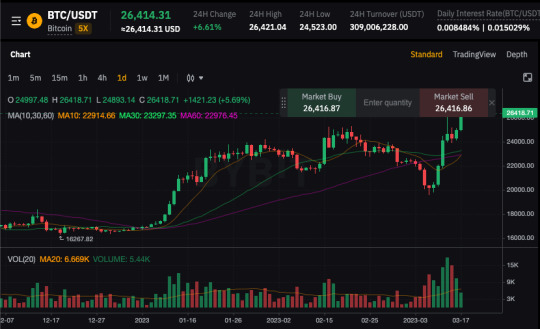#stockMarket
Text
The 2020s news cycle is just a really long version of We didn’t start the fire
10K notes
·
View notes
Text
Me going through my dashboard and seeing Castiel: Ooh, the paper's in today!
Me seeing it many times in the trending tags: Oh, it's really full today...
6K notes
·
View notes
Text
Nothing will ever match up to November 5th 2020 but June 24th 2023 came pretty damn close
#destiel#supernatural#spn#russia#ukraine#titanic#titan#news#someone please help i am so confused and only getting news updates through the destiel meme#november 5 2020#apparently something is going on with the stock market now too ??#stockmarket
2K notes
·
View notes
Text


i just opened the app
715 notes
·
View notes
Text
Want to learn how to invest?
ATTENTION CITIZENS OF BITCH NATION.
Our beloved comrade, Dumpster Doggy aka Amanda Holden, is teaching an investing workshop starting THIS SUNDAY, FEB 4. Dumpster Doggy designed this workshop as your first step toward financial freedom, and it is perfect for beginners and those who just want to understand the reasoning and mechanics behind investing.
This workshop is for you if you:
Have debt — yes, you should consider investing even if you have debt now
Don't know where to start
Want to be certain that your educational foundation is absolutely solid
Understand that investing is the key to building wealth, and know that a paycheck alone is not wealth
Don't want to work forever
Want your money to start working for you
Know that you just need to get started—no matter how small the dollar amount!
Know that education must be your foundation and that investing without knowledge is dangerous
Have a workplace retirement account
Don't have a workplace retirement account
The course costs $15. We wouldn't recommend something paid like this if we didn't believe in it, so this endorsement does NOT come lightly. Amanda is one of our ride-or-dies, and she left Wall Street so she could teach investing through a feminist lens.
But if $15 is too rich for your blood, we are offering Amanda's course FOR FREE to our Patreon donors. Sign up at the $5 level or higher and it's yours ($15-$5=$10 SAVINGS HOLY CANNOLI). We'll have the information for Patreon donors up tomorrow.
Lastly, if you can't make it live, you'll still get a recording of the workshop. So don't worry if you're not available this Sunday. Ok here are those links again:
Investing for Freedom Workshop with Dumpster Doggy
Bitches Get Riches Patreon for free access to workshop
#investing#stock market#how to invest#how to invest in the stock market#stocks#trading stocks#investors#investments#personal finance#money#money advice#money tips#making money#investing stocks#stockmarket
115 notes
·
View notes
Text

#twitter x#finance#ipo#stockmarket#invest#memes#100 days of productivity#mensfashion#bse#investing#banking#twitter#funny#humor#tweets#wtf
20 notes
·
View notes
Text
#nvidia#bitcoin#gold#stockmarket#wall street#investment#money#street#World#economy#business#day trading#trader#crypto#NFT#NFT art#NFT artist
26 notes
·
View notes
Text

"Those who keep learning will keep rising in life."
-- Charlie Munger
#charliemunger#warrenbuffett#money#stockmarket#warrenbuffet#stocks#investment#investor#elonmusk#warrenbuffettquotes#business#quotes#invest#jeffbezos#entrepreneur#billionaire#millionaire#billgates#entrepreneurship#investing#financialindependence#entrepreneurquotes#entrepreneurlife#forbes#markzuckerberg#motivation#forex#stevejobs#bitcoin#valueinvesting
15 notes
·
View notes
Text

In the stock market, a short squeeze is a rapid increase in the price of a stock owing primarily to an excess of short selling of a stock rather than underlying fundamentals. A short squeeze occurs when demand has increased relative to supply because short sellers have to buy stock to cover their short positions.

What's a Short Squeeze and Why Does It Happen?
Key Points
A stock that rallies hyperbolically when there are no obvious current events driving the response, could be experiencing a short squeeze.
A short squeeze can potentially be worth trading, but only if you exercise great care.
The aim of short selling is to generate profit from a stock that declines in value. (Short selling involves borrowing a security whose price you think is going to fall from your brokerage and selling it on the open market. Your plan is to then buy the same stock back later—hopefully for a lower price than you initially sold it for—and pocket the difference after repaying the initial loan.) While there are potential benefits to going short, there are also plenty of risks. One big risk is when a bullish catalyst (earnings, news, technical event, etc.) pushes the stock price higher, prompting short sellers to "head for the exits" all at once. As the shorts scramble to buy back and cover their losses, upward momentum can build on itself, causing the stock to move sharply higher. This is known as a short squeeze.
Understanding the short squeeze
What makes a short squeeze so dangerous? Think of it this way: When you buy a stock, the worst thing it can do is drop to zero. But the upside is unlimited. If a stock has a growth narrative and there are enough believers, the share price can go well beyond what looks reasonable by traditional fundamental metrics.
Classic signs of a short squeeze can include:
A security has a significant amount of short sellers (short interest) who believe the stock price is going to fall, and then instead the stock price sharply rises, forcing many of these leveraged short sellers to quickly exit their positions, buying back the stock in the face of potentially increasing losses.
A dynamic narrative that tries to justify the detachment of share prices from a company's intrinsic value
A case for massive growth as well as for financial stress
Traders with deep pockets aligned on both sides of the trade, often using options and other leveraged instruments
With GameStop (GME) in 2021 and Tesla (TSLA) in 2020, there were many classic signs of a short squeeze. Traders with short positions were covering because they had to, either because they had sustained large losses or shares were no longer available to be borrowed. In 2022, short sellers targeted troubled companies such as Bed, Bath & Beyond (BBBY) and Carvana (CVNA). In early 2023, the most heavily shorted companies included Coinbase Global (COIN), a cryptocurrency firm, and Occidental Petroleum (OXY).
When a stock suddenly experiences a dramatic climb, with or without good news, it's important to ask yourself, "Who would buy shares up here?" The answer? Someone who doesn't have enough money to hold on any longer, or someone whose pain threshold has finally been crossed.
Proceed with caution
If you're a long-term investor who happens to own a stock that's getting squeezed, it's probably not a good time to trade. Instead of acting on emotions, remember what got you to where you are in your investing journey—and where you'd like to be. If buying a stock that's in squeeze territory doesn't fall within your long-term objectives, you might want to step aside and not trade. If you do decide to venture in, make sure you have no illusions and no misconceptions of the dangers. Understand that when you’re dealing with a stock that’s being squeezed, you're taking a big risk.
Identifying a short squeeze can be relatively simple—after the fact. The trick is to identify the conditions that could lead to a squeeze ahead of time, and then determine how you might want to play it (or not).
Shorting a stock is a complicated business. Because you can't sell something you don't own, shorting requires the seller to "borrow" the stock (and pay interest to the stock lender), then sell it. Locating the shares can sometimes be difficult for your clearing firm because of high demand or a small number of outstanding shares.
Measuring a short squeeze can involve a metric called the short interest ratio, a.k.a. "days to cover." It indicates, in days, how long it would take to cover or buy back all the shorted shares. Basically, you divide the number of shares sold short by the average daily trading volume. The more days to cover, the more pronounced the effect can be.
Another measure is "short interest as a percentage of float," which reflects the number of short-sold shares in proportion to the total number of shares available for trading in the public markets. Most stocks have a small amount of short interest, usually in the single digits. The higher that percentage, the greater the bearish sentiment may be around that stock. If the short % of the float reaches 10% or higher, that could be a warning sign.
Consider the fundamentals
If you're buying a stock that seems to be in the throes of a short squeeze, especially at high levels, it helps to understand other potential reasons why the stock might be moving.
Consider checking the fundamentals. Is there anything that would make you want to own the stock? Are you tempted to buy it because everyone else is? It's important to always do your homework, and remember it's never wise to go all in. A stock that's in a short squeeze may still have a long way to climb, and if you don't think the fundamentals support higher prices, then perhaps you should look elsewhere.
In the case of TSLA in 2020, there were some positive fundamentals underlying the short squeeze, including the company's more consistent profitability and hopes of it being included in the S&P 500 Index (SPX). The stock saw its share price run up to new highs, then decline nearly 60%.
But then TSLA rallied again and split its shares, and its addition to the SPX became a reality, illustrating that a short squeeze doesn't always have to end badly. Other stocks that were caught up in short squeezes haven't always fared so well, in part because they didn't have the fundamental support.
Playing the squeeze on the long side?
If you want to trade a stock during what might be a short squeeze—that is, buying a stock with a higher short interest in order to potentially play the upside of a squeeze—here are some things to consider:
Trading such a stock may be okay as long as you understand the risk and how to control it. Whether you make small or large trades, you have to control and limit the risk. Decide how much money you would be comfortable losing in any trade ahead of time.
Don't underestimate how high the stock can go and how long it can take. When a stock gets caught up in a short squeeze, analysts generally expect it to correct eventually, but no one knows to what price and when; if it happens at all.
If the stock still has very weak fundamentals, yet is moving significantly higher without any real, structural changes in the corporation, then be extremely careful buying on this type of upward momentum. The markets may run out of new buyers willing to pay higher and higher prices and the stock may in the end fall quickly.
The bottom line
A short squeeze is a high-risk situation and it may cause havoc in the market, but most don't last forever. Most eventually subside.

#kemetic dreams#the big short#finance#financial#short squeeze#stocks#financialnews#investing#earningsreport#stockmarket#market#money#make money online#earn money online#make money from home#old money#millionaire#profit#finances#income
9 notes
·
View notes
Text
The Stock Market's Role in Cyberpunk Futures: Speculation Beyond Currency
In the shadow-streaked corridors of cyberpunk fiction, where neon signs flicker against rain-slicked streets and the divide between the powerful and the powerless widens, the stock market emerges not just as a battleground of wealth but as a pivotal narrative device. This genre, known for its gritty exploration of futuristic dystopias dominated by mega-corporations and technological advancements, often delves into unconventional economies. An intriguing aspect of this exploration is the use of stock shares as compensation, a concept highlighted in works like Walter Jon Williams' "Hardwired," where mercenaries and operatives navigate a world where loyalty can be bought with equity.
The Fictional Forefront
In "Hardwired," the characters inhabit a post-catastrophe Earth, engaging in high-stakes missions against the backdrop of corporate warfare. Here, currency transcends traditional boundaries, with stock options serving as payment for services rendered. This mechanism isn't just a quirky detail; it's a reflection of the characters' deep entanglement with the corporations that shape their world. The notion of being paid in stock positions them as stakeholders, literally invested in the success or failure of their corporate benefactors. This intertwining of personal fate with corporate performance underscores the cyberpunk theme of blurred lines between individual and institution.
Such narrative choices speak volumes about the genre's fascination with the fluidity of value and the potential for individuals to navigate, manipulate, or fall victim to these systems. By grounding remuneration in stock, cyberpunk fiction underscores a reality where everything is commodified, and human worth is measured in market potential.
Echoes in Reality
The concept of being compensated with stock, once a speculative fiction trope, now resonates with real-world trends. The proliferation of retail investment platforms and mechanisms has democratized access to equity markets, blurring the lines between professional traders and the general public. This accessibility invites a scenario where companies, especially startups and tech giants, offer stock options as part of compensation packages, embedding employees within the financial fabric of the enterprise.
This trend raises questions about the implications of a society increasingly invested—literally—in the success of corporations. Could this lead to a future where employment and investment are so intertwined that individuals become microcosms of the market? And if so, is this fusion of roles beneficial or detrimental?
Prospects and Pitfalls
The potential benefits of a stock-based compensation system include increased employee loyalty and a vested interest in the company's success. This could foster a culture of innovation and collective effort, driving companies to perform better. Additionally, it democratizes wealth creation, offering individuals a stake in economic growth previously reserved for the elite.
However, the risks are significant. Such a system could exacerbate wealth inequality, with market fluctuations disproportionately affecting those whose livelihoods depend on the performance of their corporate shares. It also raises ethical concerns about the concentration of power and influence within corporations, potentially leading to abuses and exploitation.
Navigating the Dystopia
The cyberpunk narrative of a corporate-led dystopia, then, is not just a cautionary tale but a roadmap of potential realities. It challenges us to consider how close we are to a world where our fortunes are as volatile as the stock market, and where our identities and destinies are intrinsically linked to the corporate entities we serve or oppose.
In this landscape, winning might not mean amassing wealth or stockpiling shares but finding a way to navigate the system without losing one's humanity. It's a delicate balance, one that requires vigilance, adaptability, and, perhaps most importantly, a clear-eyed view of the value we place on ourselves and our labor.
As we edge closer to this speculative future, the questions posed by cyberpunk fiction become increasingly relevant. Is the integration of personal and corporate fortunes a path to empowerment or enslavement? Can individuals thrive in a system where success is measured by market performance? And perhaps most crucially, how do we ensure that in this corporate-led dystopia, people can still win—or at least, find a way to redefine what winning means?
In exploring these questions, cyberpunk fiction doesn't just entertain; it educates and warns, offering a glimpse into a future that might already be upon us. As retail investment mechanisms continue to evolve and the line between employee and investor further blurs, the genre's speculative visions become vital reflections on our collective trajectory. The stock market, in this context, is more than a backdrop—it's a battleground for the soul of society, where the stakes are as personal as they are financial.
- REV1
12 notes
·
View notes
Text
Protect The Oppressed, Fatherless, Widows...
As a christian, are you protecting & supporting the fatherless, oppressed, & widows or are you on the side of the rich & powerful? Why are several "religious" leaders pushing to cut social programs while calling for increases in defense spending & more tax cuts for businesses and the wealthy?
#democrats#republicans#election#donald trump#catholic#conservative#maga#christian faith#bible#evangelicals#gop#biden 2024#women#march madness#mlb#easter#lent#nra#stockmarket#blacklivesmatter#hispanics#latino#investing
10 notes
·
View notes
Text
Looking for a powerful tool to help you make better trading decisions? Look no further than Finviz.com. With advanced stock screener, real-time market data, and customizable charts, Finviz.com is the ultimate platform for traders and investors alike. Whether you're looking for new investment opportunities, analyzing market trends, or just want to stay on top of the latest financial news, Finviz.com has everything you need to succeed. Sign up today and start trading smarter!

Click the link above to get started!
#finance#banking#stocks#stock market#stockmarket#financial#financialtools#stock charts#financial infor#financial freedom#wall street#wallstreet#business and economy#investor#investing#financial news#finance news#financialnews#stock prices#stock screener#futures#options#forex#crypto#cryptocurrency#backtesting#portfolio#stock portfolio#portfolio management services
26 notes
·
View notes
Text
"The Funded Trader" Enabling traders to reach their full potential.
With the arrival of the booming prop firm industry, aiming to fund the traders to take their trading career to next levels, there is one name that stands out , a leading prop firm in the prop firm space "The Funded Trader".
With their carefully designed programs to help traders of all kids and styles. They provide upto $600000 in funded capital that can be scaled upto $1.5million allowing you to never depend on small capital and in the process helping you to take the big step towards a better future in financial markets.
Offering different account options to accomodate your trading style and your trading strategy. you can choose betwqeen regular or swing tading accounts.
Standard Challenge:

Choose account sizes ranging from $5000 to $400000. Pass two step varification process with leading industry standard rules and regulation.
phase 1 target: 8%
phase2 target 5%
Rapid Challenge:

With zero minimum trading days, to fast track your journey to be a funded trader.
Accounts ranging from $5000 to $200000.
Royal Challenge:

With the accounts ranging from $50,000 to $400,000. Royal challenge has no limits on EA's and the news trading is allowed.
Knight challenge:

One step challenge with unlimited days and 0 minimum days. you can select challenge accounts ranging from $25000 to $200000.
Why The Funded Trader is industry leader?
Social media presence: With their different accounts type and a bigger community of traders, The funded trader helps you to connect with like minded traders and take your trading journey to the next level.
Discord: A very active discord to help with any queries and the constant give aways keep you engage in the community.
Treasure Hunt app: very first of its kind, treasure hunt app to keep you engaged within the community and you can earn rewards every month. https://hunt.thefundedtraderprogram.com/r/adnanali?fbclid=IwAR3ZVgXIIRLB7yker6-I93290JdC8r57rUDdh5w3J9_vdToWgwwFfqtZQFU
Monthly trading competition: The biggest monthly trading competition in the industry where you can showcase your trading potential and earn rewards and different challenge accounts.
The funded trader is true industry leader in the prop firm industry. so take a leap of faith and embark on a trading journey to keep you financially independent.
Click on the Affiliate link below to buy a challenge today.
#the funded trader#stockmarket#crypto#finance#forex#marketing#crptocurrency#gold#sucess story#binance#lifestyle#life skills#forex online trading#forex education#forex trading#forexsignals#forextrading#forexmarket#forexmentor#trader
18 notes
·
View notes
Text
So an interesting fact I haven't seen anyone bring up involving reddit and the api changes and all of that is that reddit isn't publicly traded... yet. They're trying to become publicly traded sometime this year. Initially they wanted to become public in 2021 which is when they filed all of the paperwork for a 2022 launch but global events happened. All of their recent stupid decisions SEEM to be in anticipation of stock holders and investors that do not currently exist.
A desperate bid to make the company money before the IPO goes through.
Now in the spirit of reddit... Stock price is determined based on the companies value and interest from investors on a moment-to-moment basis once a stock is established, but the initial stock price takes longer and involves a lot of research and voting. If that image of the CEO out-and-out saying reddit wasn't profitable was to somehow and in some way end up outside of our circles...
Just saying.
Also to be very clear I'm not saying pull a GME and let cryptobros coopt it and rook people out of money. I'm saying pull a Tumblr vs Yahoo. Become unprofitable.
17 notes
·
View notes
Text
One of the best and easiest way to train your intuition is to try to predict the market. Will it go up, down or f*cking sideways?


#intuitive#intuition#wolf of wall street#market#stockmarket#investing stocks#crypto#cryptocurrencies#bitcoin
33 notes
·
View notes
